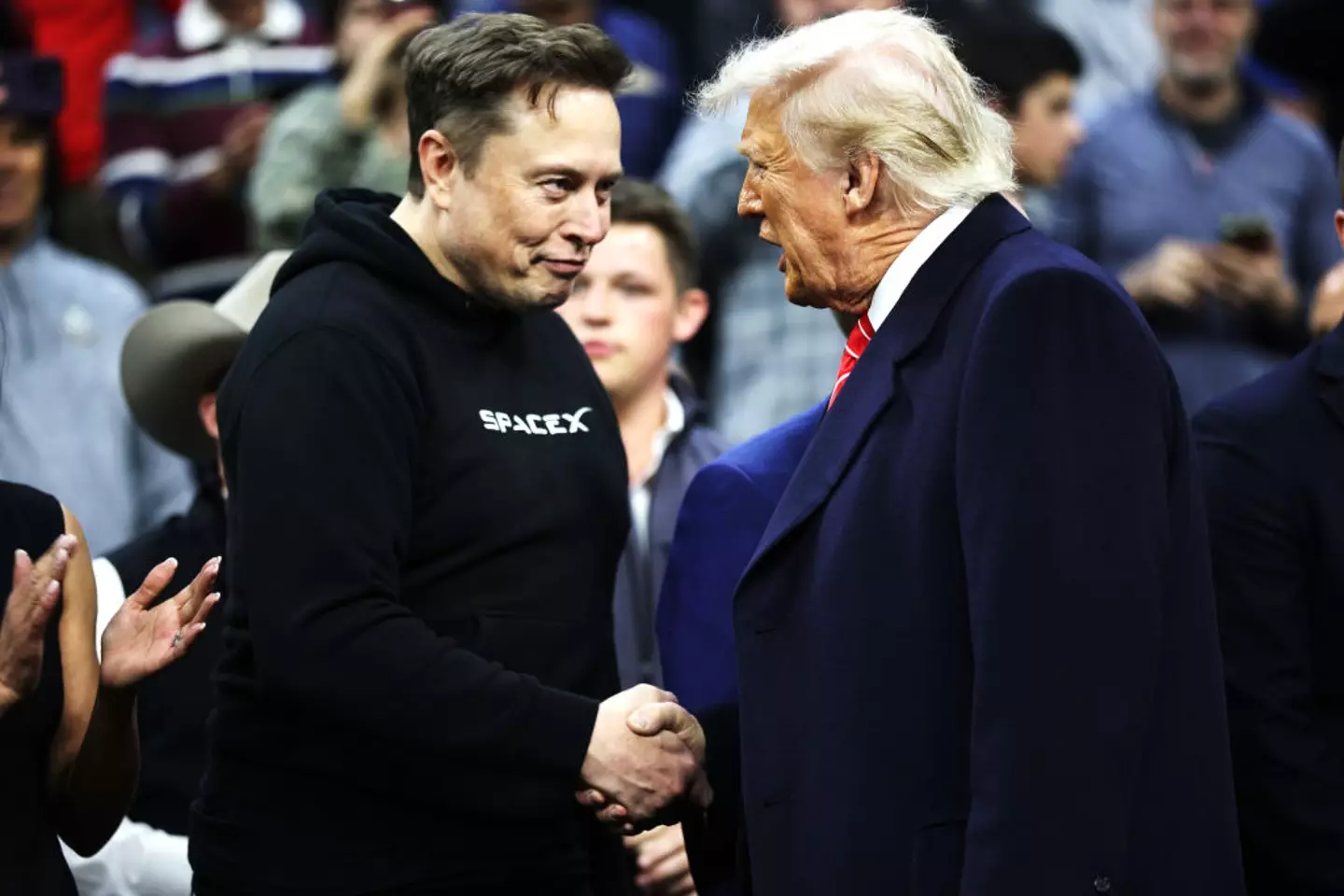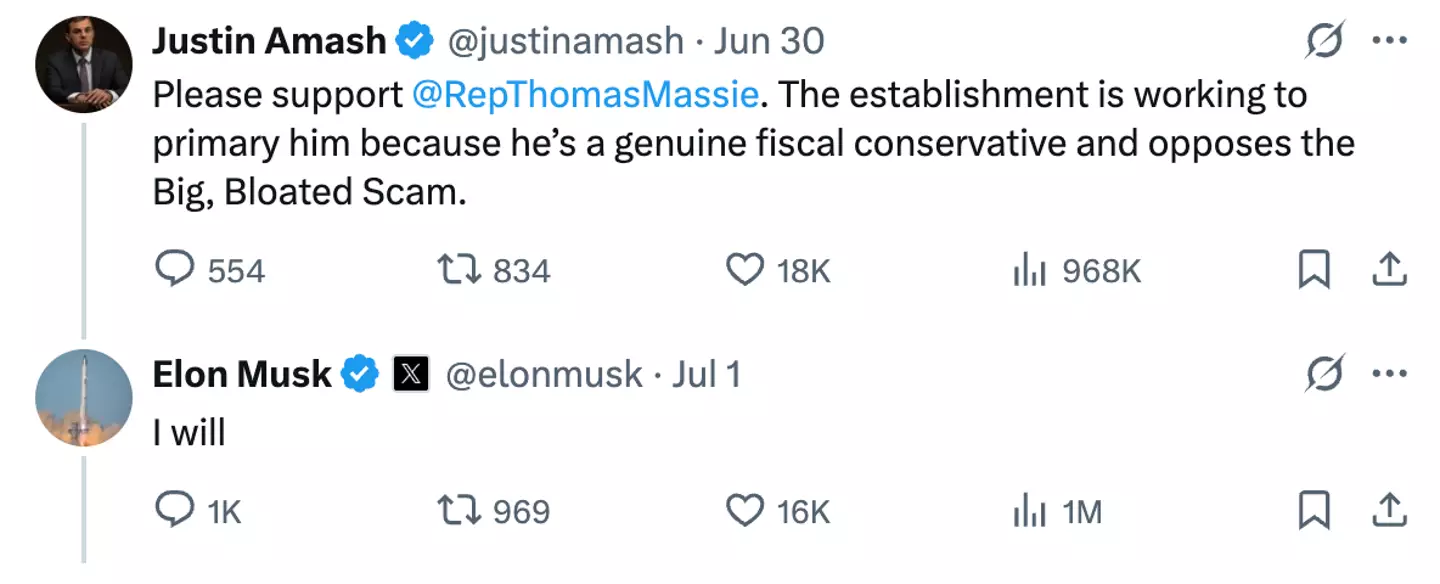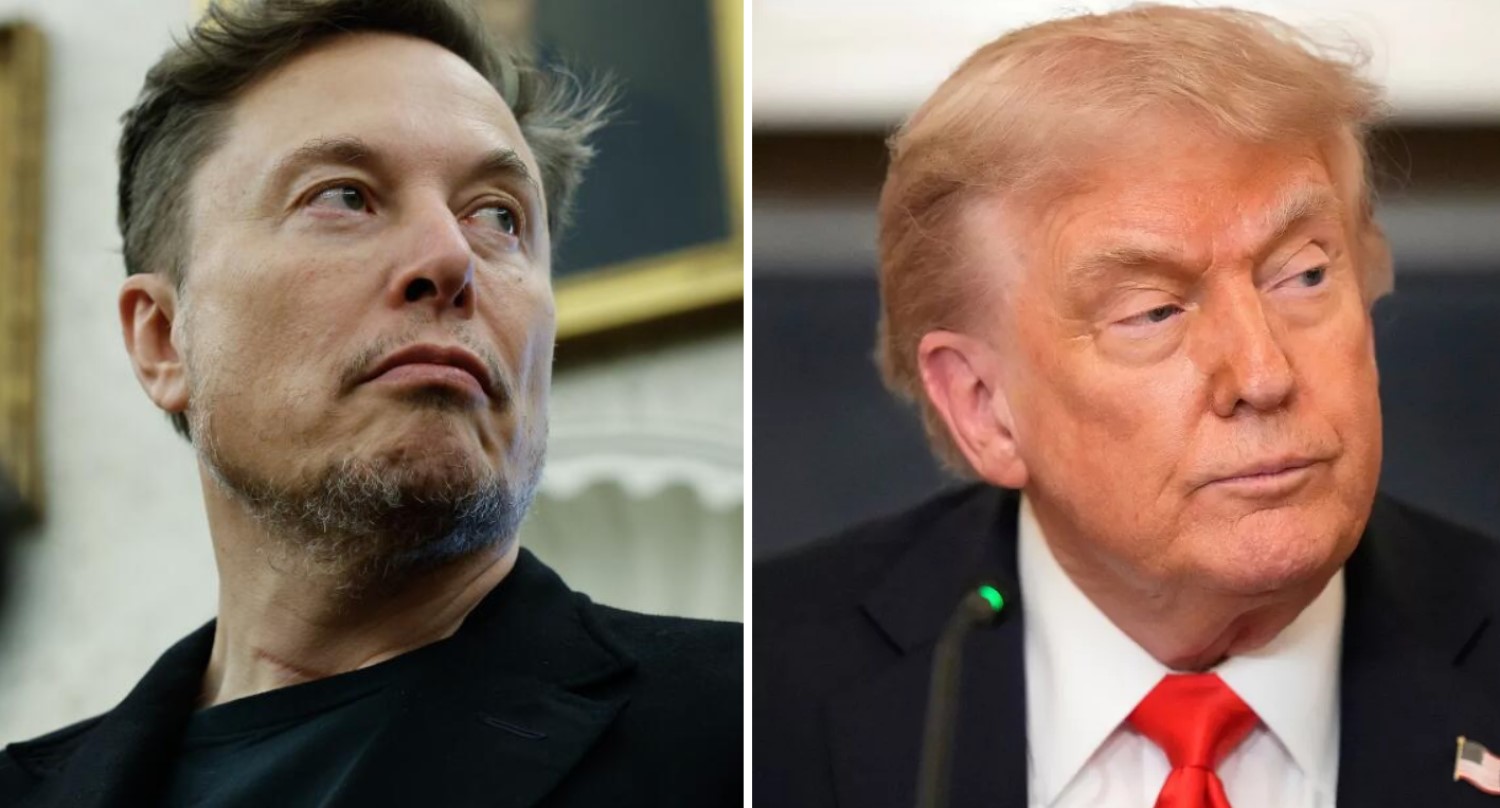When Titans Clash: The Fracturing of America’s Most Powerful Political Alliance
In the high-stakes world of American politics, where loyalties shift like sand and today’s allies can become tomorrow’s adversaries, few relationships have captured public attention quite like the complex dynamic between two of the most influential figures in contemporary society. When billionaire entrepreneurs and career politicians forge alliances, the intersection of private wealth and public power creates dynamics that can reshape entire political landscapes. However, these relationships also carry inherent tensions that can explode into public view when fundamental disagreements emerge about the direction of policy and governance.
Recent developments have exposed deep fissures in what was once considered one of the most formidable partnerships in American politics, revealing how even the strongest alliances can fracture when core principles and strategic visions diverge. The unfolding drama offers a fascinating glimpse into the mechanics of power, influence, and the delicate balance between personal loyalty and ideological conviction that defines modern political relationships.

(Kayla Bartkowski/Getty Images)
The Genesis of a Political Powerhouse Partnership
The alliance between Elon Musk and Donald Trump represented a convergence of technological innovation and political populism that seemed to promise a new model for American governance. This partnership brought together Musk’s entrepreneurial vision and massive social media influence with Trump’s political movement and policy agenda, creating what many observers considered one of the most formidable combinations of private and public power in recent American history.
The Foundation of Mutual Benefit
Initially, the relationship between Musk and Trump appeared to be built on a foundation of mutual benefit and shared objectives. Musk’s support provided Trump with credibility among tech-savvy voters and entrepreneurs, while Trump’s political platform offered Musk potential policy advantages for his various business ventures, from electric vehicles to space exploration to social media operations.
The partnership seemed particularly strategic given Musk’s acquisition and transformation of Twitter into X, providing Trump with a powerful platform for communication and message amplification. This technological infrastructure, combined with Musk’s influence among younger demographics and tech industry professionals, offered Trump access to constituencies that might otherwise be skeptical of traditional political messaging.
For Musk, the alliance provided direct access to policy-making processes and the opportunity to influence regulations affecting his companies. The potential for favorable treatment of electric vehicle incentives, space industry contracts, and social media platform regulations made the political partnership an attractive strategic investment from a business perspective.
The Honeymoon Period: Shared Goals and Public Unity
During the early phases of their collaboration, Musk and Trump presented a united front on numerous policy issues, from economic deregulation to technological innovation to challenging established political norms. Their public appearances and social media interactions suggested a relationship built on genuine mutual respect and shared vision for American economic and technological leadership.
Musk’s presence in Trump’s inner circle during transition periods and policy discussions signaled the depth of their collaboration, with the tech entrepreneur serving not just as a supporter but as an active participant in governance planning. This level of integration between private sector leadership and political power represented a new model for business-government relationships that attracted both admiration and criticism from various quarters.
The partnership’s early successes in advancing shared agenda items reinforced the perception that this alliance could effectively bridge the traditional gap between Silicon Valley innovation and Washington political power, potentially creating new pathways for implementing technological solutions to governance challenges.
The Emergence of Ideological Fractures
However, beneath the surface of public unity, fundamental differences in philosophy and approach began to emerge as the partnership evolved from campaign support to actual governance decisions. These differences, initially manageable as minor disagreements, eventually grew into irreconcilable conflicts over core policy directions and fiscal priorities.
The “Big Beautiful Bill” Controversy
The breaking point in the Musk-Trump relationship came with the development and passage of what Trump repeatedly called his “big beautiful bill”—a comprehensive legislative package that the Republican-controlled House of Representatives ultimately approved by a narrow 218-214 vote margin. This legislation became the focal point for a fundamental disagreement about the proper role of government, fiscal responsibility, and policy priorities that exposed the underlying tensions in their alliance.
Trump’s bill represented a traditional approach to political coalition-building, incorporating various tax breaks and spending provisions designed to satisfy different constituencies while advancing core campaign promises. The legislation included significant tax reductions that Trump had promised during his 2024 presidential campaign, along with cuts to various government programs that reflected conservative priorities about reducing federal spending in certain areas.
However, the bill’s complexity and fiscal implications created concerns among fiscal conservatives and efficiency-minded observers who worried about its long-term impact on government finances and economic policy. The Congressional Budget Office’s analysis projected that the legislation would add $3.4 trillion to the national debt over ten years while potentially leaving nearly 12 million people without health insurance through cuts to Medicaid programs.
Musk’s Public Criticism and Philosophical Opposition
Musk’s opposition to the bill represented more than simple policy disagreement—it reflected fundamental differences in approach to governance, fiscal responsibility, and the proper role of government in economic affairs. His characterization of the legislation as “utterly insane and destructive” signaled a complete breakdown in the consensus that had previously characterized his relationship with Trump.
The tech entrepreneur’s criticism focused on several key areas that highlighted his philosophical differences with traditional political approaches. His concern that the bill would “destroy millions of jobs in America and cause immense strategic harm to our country” reflected his focus on long-term economic competitiveness and innovation rather than short-term political gains.
Particularly revealing was Musk’s argument that the legislation provided “handouts to industries of the past while severely damaging industries of the future.” This critique exposed a fundamental tension between Trump’s appeal to traditional economic sectors and Musk’s focus on emerging technologies and future-oriented economic development.
Musk’s prediction that supporting such legislation would constitute “political suicide for the Republican Party” demonstrated his belief that the party needed to embrace forward-looking policies rather than backward-looking protections for established interests. This perspective put him at odds with Trump’s more traditional approach to political coalition-building and constituency management.

Musk made clear his support for Thomas Massie (X/@elonmusk)
The Aftermath: Public Recriminations and Political Realignment
The passage of Trump’s bill despite Musk’s vigorous opposition marked a decisive moment in their relationship, transforming a private disagreement into a public political confrontation with implications extending far beyond their personal dynamic.
Musk’s Scathing Post-Passage Response
Following the bill’s approval in Congress, Musk’s response on X revealed the depth of his frustration and his willingness to take their conflict public in ways that could damage both their relationship and Trump’s political standing. His statement that “Every member of Congress who campaigned on reducing government spending and then immediately voted for the biggest debt increase in history should hang their head in shame” represented a direct challenge to Trump’s leadership and the loyalty of Republican legislators.
Even more significantly, Musk’s promise that these legislators “will lose their primary next year if it is the last thing I do on this Earth” constituted a direct threat to use his wealth and influence to oppose Trump-backed candidates in upcoming elections. This threat transformed their policy disagreement into an open political war with potentially far-reaching consequences for Republican primary elections and party unity.
The intensity of Musk’s language suggested that this was not a temporary disagreement that could be resolved through private negotiation, but rather a fundamental break that would likely define their relationship going forward. His willingness to make such public threats indicated that he viewed the bill’s passage as a betrayal of principles significant enough to justify ending their political alliance.
Strategic Support for Trump’s Republican Critics
Musk’s decision to support Representative Thomas Massie, one of only two House Republicans who voted against Trump’s bill, represented a strategic escalation of his opposition that could have significant implications for internal Republican Party dynamics. This support was not merely symbolic but involved concrete financial commitments that could influence primary election outcomes.
When former Representative Justin Amash requested Musk’s support for Massie, describing him as “a genuine fiscal conservative” who “opposes the Big, Bloated Scam,” Musk’s immediate agreement to provide support signaled his willingness to actively fund opposition to Trump-backed policies and potentially Trump-aligned candidates.
Musk’s promise to donate to Massie’s re-election campaign represented more than financial support—it constituted an endorsement of an alternative vision for Republican governance that prioritized fiscal conservatism over political loyalty. This support could encourage other Republicans to take similar positions in opposition to Trump’s policy priorities.
The Massie Factor: A Symbol of Republican Internal Conflict
Representative Thomas Massie’s role in this controversy extends beyond his individual vote against Trump’s bill to represent broader tensions within the Republican Party about its future direction and philosophical foundations.
Massie’s Record of Independent Opposition
Massie’s opposition to Trump’s bill was consistent with his broader record of independent thinking and willingness to oppose both party leadership and presidential pressure when he believed principle required such opposition. His previous criticism of Trump’s foreign policy decisions, including describing presidential military strikes as “not Constitutional,” demonstrated his willingness to prioritize constitutional principles over party loyalty.
This record of independence made Massie an attractive figure for Musk’s support because it represented an alternative model of Republican governance that prioritized limited government principles over political expediency. Massie’s willingness to oppose his own party’s leadership when necessary aligned with Musk’s apparent frustration with traditional political coalition-building approaches.
Massie’s description of his re-election as “a referendum on whether members of Congress can think and act independently based on what’s best for the country, or whether all members of Congress must be reduced to rubber stamps for their respective political parties” framed the broader conflict in terms that appealed to Musk’s entrepreneurial sensibilities and distrust of conventional political processes.
Trump’s Counter-Attack and Party Discipline
Trump’s characterization of Massie as a “pathetic loser” and his promise to campaign “really hard” against him in Kentucky demonstrated the president’s determination to maintain party discipline and punish Republicans who opposed his priorities. This response revealed the high stakes involved in the Musk-Massie alliance and the potential for this conflict to reshape Republican primary dynamics.
Trump’s promise to support “a wonderful American Patriot” against Massie in the Republican primary represented a test of whether presidential influence or billionaire funding would prove more decisive in determining election outcomes. This competition could provide important insights into the changing dynamics of political influence and money in contemporary American elections.
The conflict between Trump and Massie, amplified by Musk’s involvement, also highlighted broader questions about the future of the Republican Party and whether it would embrace populist nationalism or return to more traditional conservative principles emphasizing limited government and fiscal responsibility.
The Broader Implications for American Politics
The breakdown of the Musk-Trump alliance carries implications that extend far beyond their personal relationship to affect broader patterns of political power, influence, and coalition-building in American democracy.
The Role of Billionaire Political Influence
Musk’s willingness to use his wealth to oppose Trump’s agenda raises important questions about the role of individual billionaires in shaping political outcomes and the potential for economic elites to exercise disproportionate influence over democratic processes. His threat to fund primary challenges against Republicans who supported Trump’s bill represents a form of political power that operates outside traditional party structures and democratic accountability mechanisms.
The effectiveness of Musk’s political spending compared to Trump’s political influence will provide important data about the relative power of wealth versus organized political movements in contemporary American politics. This competition could establish new precedents for how individual billionaires engage with political parties and electoral processes.
The Musk-Trump conflict also highlights the potential instability of political alliances based primarily on mutual benefit rather than shared principles. When business interests and political priorities diverge, these relationships can quickly transform from assets into liabilities for all parties involved.
Technology, Media, and Political Communication
Musk’s control of X provides him with a unique platform for political communication that operates independently of traditional media gatekeepers and party communication structures. His ability to directly reach millions of followers with his political messages gives him influence that rivals or exceeds that of traditional political leaders.
The use of social media platforms for political communication and mobilization has transformed how political conflicts unfold and how public opinion is shaped. Musk’s control of a major social media platform while simultaneously engaging in political advocacy raises questions about the concentration of communication power and its implications for democratic discourse.
Representative Massie’s appreciation for how X allows him to “bypass conventional media to refute the lies of both political parties and to provide transparency about how Congress works” illustrates how social media platforms can empower individual politicians to communicate directly with constituents while potentially undermining traditional party message discipline.
The Future of Republican Party Unity
The Musk-Trump conflict represents a broader challenge to Republican Party unity and coherence as different factions pursue conflicting visions of conservative governance. The tension between populist nationalism and traditional fiscal conservatism has been building within the party for years, and this conflict brings these differences into sharp relief.
The outcome of primary battles between Trump-backed candidates and Musk-supported alternatives will provide important indicators of which vision commands greater support among Republican voters. These elections could determine whether the party moves toward greater ideological coherence or continued internal conflict.
The involvement of external billionaire funding in Republican primaries also raises questions about the autonomy of party decision-making processes and the potential for wealthy individuals to effectively purchase influence over party direction and candidate selection.
Economic and Policy Implications
The specific policy disagreements that triggered the Musk-Trump split have significant implications for American economic policy and the direction of government fiscal priorities.
Competing Visions of Economic Development
The conflict between Musk and Trump reflects fundamentally different approaches to promoting American economic competitiveness and prosperity. Trump’s “big beautiful bill” represents a traditional political approach that provides benefits to various constituencies while advancing specific policy goals, even if the overall fiscal impact is significant.
Musk’s opposition reflects a more technocratic approach that prioritizes long-term economic efficiency and competitiveness over short-term political benefits. His concern about supporting “industries of the past” versus “industries of the future” highlights tensions between protecting existing economic interests and promoting innovation-driven growth.
These competing visions have important implications for how America positions itself in global economic competition, particularly with regard to emerging technologies, environmental challenges, and the transition to new energy systems.
Fiscal Responsibility and Government Role
The disagreement over the bill’s fiscal implications reflects broader debates about the proper role of government in economic affairs and the acceptable levels of government debt and spending. The projected $3.4 trillion addition to the national debt represents a significant fiscal commitment that could affect government’s ability to respond to future economic challenges.
Musk’s emphasis on fiscal responsibility aligns with traditional conservative principles but conflicts with the political realities of building coalitions and maintaining electoral support. This tension between principle and pragmatism is a recurring theme in American politics that often determines the success or failure of political movements.
The long-term sustainability of current fiscal policies, regardless of whether they reflect Trump’s or Musk’s preferred approaches, remains a critical challenge that will affect American economic prospects for decades to come.
Looking Ahead: The Evolution of Power Dynamics
The Musk-Trump conflict represents a significant moment in the evolution of American political power dynamics, with potential implications for future elections, policy development, and the relationship between private wealth and political influence.
The 2026 Primary Elections
The upcoming primary elections will provide the first major test of the relative political influence of Trump and Musk as they support competing candidates and visions for Republican governance. These elections will determine whether billionaire funding can successfully challenge established political leadership and whether voters prefer traditional party loyalty or principled independence.
The success or failure of Musk-supported candidates could establish new precedents for billionaire political involvement and influence the willingness of other wealthy individuals to engage in similar political advocacy efforts.
Long-term Alliance Possibilities
While the current conflict appears to represent a fundamental break in the Musk-Trump relationship, political alliances can evolve and change based on shifting circumstances and priorities. Future developments in policy, electoral outcomes, or external challenges could potentially create opportunities for renewed cooperation if both parties find such collaboration beneficial.
However, the public nature of their current conflict and the intensity of their disagreements suggest that any future relationship would likely be more limited and conditional than their previous alliance.
Conclusion: A Watershed Moment in American Politics
The breakdown of the Musk-Trump alliance represents more than a simple political disagreement—it symbolizes broader tensions in American politics about the direction of conservative governance, the role of wealth in political processes, and the challenges of maintaining principled positions in an increasingly polarized political environment.
This conflict illuminates fundamental questions about how political power operates in contemporary America and whether traditional party structures can accommodate the independent influence of wealthy individuals who possess both significant financial resources and powerful communication platforms.
The resolution of this conflict, through primary elections and ongoing policy debates, will provide important insights into the future of American conservative politics and the relative influence of different models of political leadership and organization.
Ultimately, the Musk-Trump split demonstrates that even the most powerful political alliances are subject to the fundamental tensions between principle and pragmatism, between long-term vision and short-term political necessity, and between individual conviction and collective action that define democratic politics in America.
As this political drama continues to unfold, its implications will extend far beyond the immediate participants to affect the broader landscape of American politics, economic policy, and the ongoing evolution of power relationships in the digital age. The outcome will help determine not only the future of the Republican Party but also the role of technology leaders in shaping American governance and policy for years to come.

